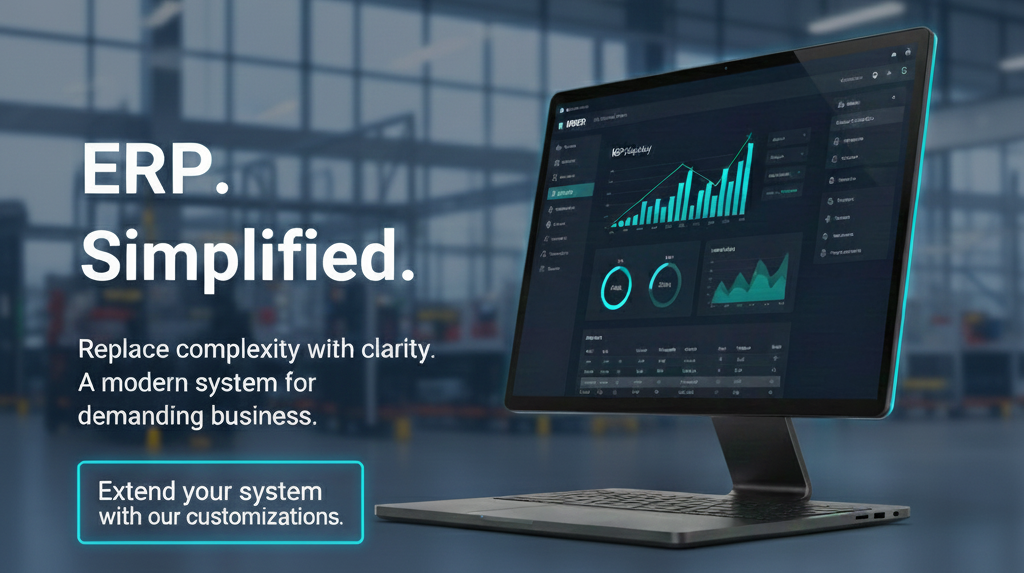Many organizations believe that mastering AI or prompt engineering will instantly deliver a competitive edge. However, the harsh reality is that true transformation depends on the quality of your data and the maturity of your business processes. In the era of IFS Cloud and advanced analytics, «Garbage In, Garbage Out» (GIGO) is not just an IT principle, it’s a strategic risk that determines who thrives and who merely automates chaos. This guide explains why Data Governance and process maturity are the real keys to unlocking the potential of IFS Cloud and AI.
The Myth of AI as a Magic Solution
Businesses often fall for the illusion that AI, particularly through prompt engineering, will provide an instant competitive advantage. Tutorials on crafting the «perfect prompt» or automating simple tasks create a misleading impression that success is just a few commands away. However, this is superficial thinking. The reality is far more complex, especially for organizations in the early stages of digital transformation.
Companies like Google, which offer AI courses, are already on the «other side» of this transformation. They have mature data governance and processes in place. For most organizations, including those implementing IFS Cloud, the challenge lies not in the technology itself, but in the quality of their data and the maturity of their processes. Without these foundations, even the most advanced tools will fail to deliver meaningful results.
Why Prompt Engineering Isn’t Enough: Lessons from IFS Cloud
IFS Cloud is a powerful tool that promises data integration, process automation, and better decision-making. However, its effectiveness depends entirely on the quality of the data it receives. Many organizations struggle with:
- Inconsistent data: Notes in CRM systems, recruitment reports, or sales plans often contain conflicting or imprecise information.
- Immature processes: If every department operates differently, reliable measurement becomes impossible. Without standardized processes, IFS Cloud risks becoming an expensive database rather than a strategic asset.
- Lack of analytical thinking: Mid-level managers, who generate most of the data that fuels AI, are rarely trained to design measurement points or analyze data causally.
For example, a company implementing IFS Cloud without standardizing its sales or production processes will quickly discover that the system generates error-filled reports. The issue isn’t with IFS Cloud, it’s with the inconsistent, outdated, or context-lacking data being inputted.
What Global Players Do (And How You Can Follow)
Leading companies don’t focus on prompts. Instead, they build robust data collection systems through mature processes that ensure:
- Stable business processes: Before automating anything, they analyze workloads, task repetition, and optimal execution paths. A key question they ask is: Does every employee understand what data to enter and why?
- Smart KPIs: They measure what truly matters, even if it’s not obvious. For example, they track customer response times in CRM systems or root causes of supply chain delays.
- Causal thinking: Since 90% of processes are still human-driven, employees must understand how their work impacts the broader strategy. Without this understanding, IFS Cloud becomes a tool for generating pretty charts rather than real value.
For IFS Cloud, this means:
- Defining a unified glossary (e.g., what constitutes a «delivery delay»).
- Implementing data cleaning and validation before data entry.
- Training teams not just on how to use IFS Cloud, but on how to collect and interpret data in a business context.
IFS Cloud + Data Governance: Where to Start Today
Building a scalable advantage with IFS Cloud and AI requires a focus on data governance and process maturity. Here’s how to get started:
- Analyze Your Teams’ Task Stacks
Identify repetitive, time-consuming processes, such as manual order entry or Excel reporting. Define the optimal path, not the «way we’ve always done it,» but the one that minimizes errors and maximizes data value.
- Adopt a «Data Obsession»
Collect not just obvious data, but also hard-to-capture insights, such as reasons for customer churn or employee feedback. Assign data owners in each department to ensure accountability.
- Treat Data as Strategic Fuel
Standardize definitions (e.g., «critical failure» vs. «routine maintenance»). Ensure data quality is a shared responsibility across the organization.
- Automate Only Mature Processes
IFS Cloud and AI can accelerate analysis, but they can’t fix broken processes. If a process doesn’t work without technology, it won’t work with it. Focus on standardizing and optimizing processes before introducing automation.
How IFS-ERP.Consulting Helps Clients
At IFS-ERP.Consulting, we don’t just teach prompt engineering. We build the foundations that make IFS Cloud deliver real value:
- Data maturity audits: We assess what data you collect, how it’s stored, and whether it’s fit for analytics.
- Process-first design: We standardize team workflows to ensure data is entered into IFS Cloud consistently and actionably.
- Analytical thinking training: We teach managers to design measurement points and interpret data strategically.
- Governance-driven IFS Cloud implementations: We don’t just deploy software, we create a data culture that accelerates transformation.
The result? Clients don’t just «implement IFS Cloud.» They build a scalable advantage by leveraging reliable, current, AI-ready data.
Conclusion: AI and IFS Cloud Aren’t Magic — they’re Systems
Prompt engineering is a micro-optimization. The real game is data governance and process maturity. The quality of your AI and IFS Cloud outputs reflects the quality of your data inputs. Start with people and processes, technology comes after.
Question for you: How many decisions in your company rely on incomplete, outdated, or inconsistently interpreted data? If the answer concerns you, it’s time to focus on building a solid data governance foundation.


